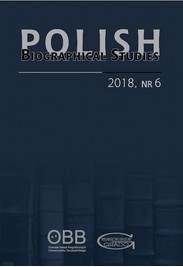Polska „wobec Rosji” w 1941 r. Nieznany memoriał Ksawerego Pruszyńskiego jako attaché prasowego ambasady polskiej w Związku Sowieckim
Poland „towards Russia” in 1941. Unknown memorial of Ksawery Pruszyński as a press attaché of the Polish embassy in the Soviet Union)
Author(s): Ariel OrzełekSubject(s): Diplomatic history, Military history, Political history, International relations/trade, Comparative politics, WW II and following years (1940 - 1949), History of Communism
Published by: Wydawnictwo Naukowe GRADO
Keywords: Ksawery Pruszyński; political thought; USSR;
Summary/Abstract: Ksawery Pruszyński, one of the most talented Polish writers and publicists of the first half of the 20th century, underwent significant political evolution in his short life. His first articles unequivocally testified that he was an anti-communist, fiercely fighting all sympathy for Soviet policy, and at the same time an apologist of Józef Piłsudski and a spokesman for the Promethean concept. Pruszyński, a conservative, having respect for the Polish traditions of this movement, but seeking his new formula adequate to the requirements of modern times, and a spokesman for „superpower Poland” was at the same time a socially sensitive creator and reluctant to any dictatorship. This quarreled with his colleagues from the editorial staff of „Youth Rebellion” and led to the ranks of cautious apologists of the republican side fighting in the Spanish Civil War. However, he formulated the concept of the Polish-Soviet alliance against Germany, for which the price could be Polish eastern lands, and the prize - German eastern lands, only after the outbreak of the German-Soviet war. In 1941–1942 Pruszyński was a press attaché at the Polish embassy of the USSR. At that time he prepared the presented memorial, probably directed at the hands of Prime Minister General Sikorski, in which he wrote about the need to recognize the importance of the Russian factor in Polish politics. The text anticipated the article Towards Russia, published in 1942, in which the author has already ambiguously suggested the necessity of the assignment of Polish eastern territories in the name of correct relations. This caused a wave of criticism of the publicist, but he was more and more consistent in his views. This led him to return to Poland in 1945 and to accept the post-Yalta reality.
Journal: Polish Biographical Studies
- Issue Year: 7/2019
- Issue No: 1
- Page Range: 207-240
- Page Count: 34
- Language: Polish

